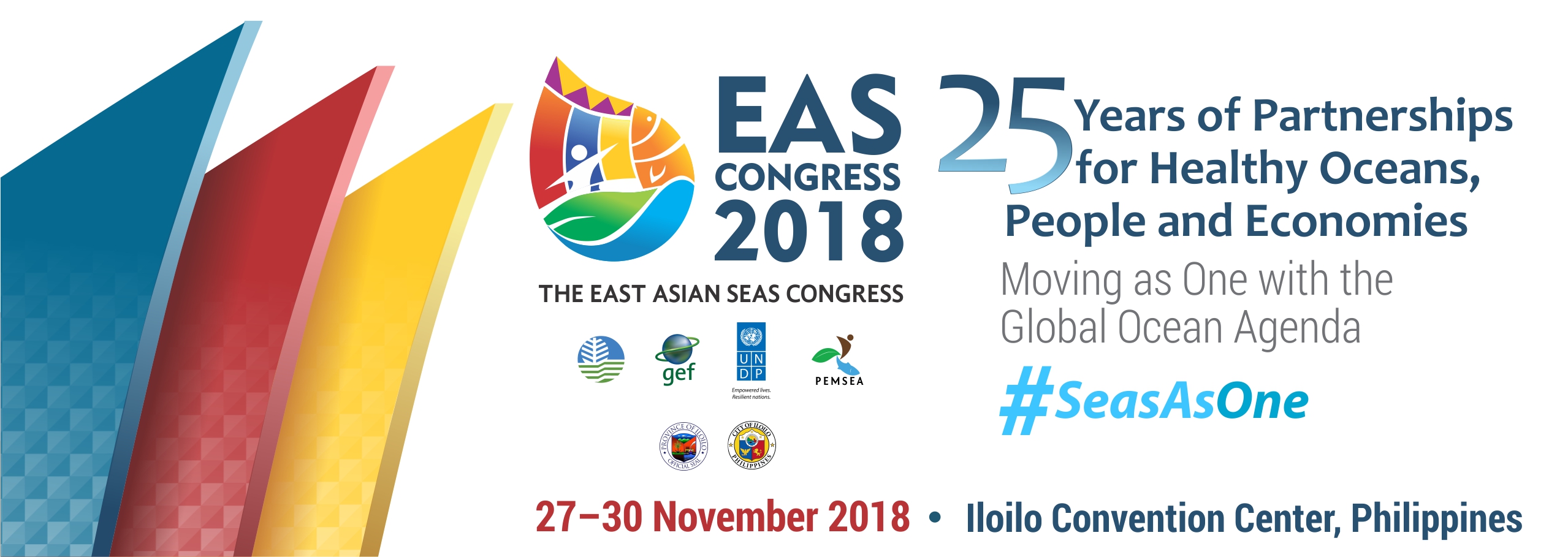Understanding Coastal Blue Carbon in the Seas of East Asia
Online Webinar

Did you know that coastal ecosystems, such as mangroves, tidal marshes and seagrass meadows, play a vital role in the global carbon cycle? In addition to providing important services that support fisheries and protect populated coastlines from erosion and flooding, these “blue carbon” ecosystems sequester massive amounts of carbon dioxide from the atmosphere, helping to regulate the global climate.
Despite their importance, blue carbon ecosystems are some of the most threatened ecosystems on the planet, with 800,000 hectares disappearing every year. When degraded or destroyed, they can become a significant source of greenhouse gas emissions. East Asia is a global hotspot for remaining coastal blue carbon ecosystems, but it is experiencing high rates of loss.
A recent report on Understanding Strategic Coastal Blue Carbon Opportunities in the Seas of East Asia, published by PEMSEA in partnership with Conservation International, The Nature Conservancy and Silvestrum Climate Associates, provides insights into the status of coastal blue carbon ecosystems in East Asia and identifies opportunities available to each country in the region to include improved management of these ecosystems within climate mitigation and adaptation actions and commitments, including opportunities to access new forms of financing.
Join this FREE 1-hour webinar to learn more about coastal blue carbon ecosystems:
Status of blue carbon ecosystems in East Asia
Rates and causes of loss and scale of greenhouse gas emissions contributing to climate change
How blue carbon links to national climate commitments and policies
Practical steps to advance management of blue carbon ecosystems
Opportunities for blue carbon financing
The presentation will be followed by Q&A where participants will have an opportunity to ask questions. Can’t attend live? You should still register -- we’ll be sending out the recorded presentation and slides to all registrants.
Tuesday, September 12
9:00 am Cambodia/Lao PDR/Thailand/Vietnam/Western Indonesia
10:00 am China/Central Indonesia/Malaysia/Philippines/Singapore
11:00 am Eastern Indonesia/Japan/RO Korea/Timor Leste
JOIN THE WEBINAR HERE
SPEAKERS
Steve Crooks, Principal, Wetlands Science and Coastal Management
Silvestrum Climate Associates
Steve Crooks is a wetland scientist / geomorphologist with 20 years post-PhD experience in the science and practice of wetland restoration. He has served in many roles bridging academia and private sector to deliver scientifically credible and practicable best-practice solutions for coastal management. After working in academic institutes in the UK with climate scientists and economists Steve joined a leading engineering consultancy specialized in ecosystem restoration as a senior geomorphologist. He started their climate change practice. More broadly, Steve has focused on defining best-practice climate mitigation and adaptation strategies. He was a Lead Author of the IPCC 2013 Wetland Supplement. He is a NASA Carbon Monitoring System Principal Investigator, is co-founder of the International Blue Carbon Initiative. He is an author of the Verified Carbon Standard (VCS) Wetland Restoration and Conservation requirements, and a Wetland Expert for the VCS. Steve is a member of the IUCN Species Survival Commissions Mangrove Specialist Group.
Moritz von Unger, Principal, Climate Policy
Silvestrum Climate Associates
Moritz von Unger is a senior policy expert with more than fifteen years of professional experience as an international advisor of governments, business and not-for-profit institutions. He specializes in international environment and climate interventions, with a special focus on land tenure policies, finance and the institutional management of low carbon investments in forests, wetlands and landscape approaches. He has extensive experience in assisting the private sector and governments with land-use based interventions, participatory processes, and institutional country climate transformations. He works both top-down focusing on policy designs, the interaction of national agencies with communities, investors and civil society, and bottom-up focusing on community involvement, program efficiency, revenue distribution and re-investment schemes. Moritz holds a PhD in international law from the University of Hamburg (Germany) and teaches and publishes regularly. He is fluent English, French, alongside his native German.



